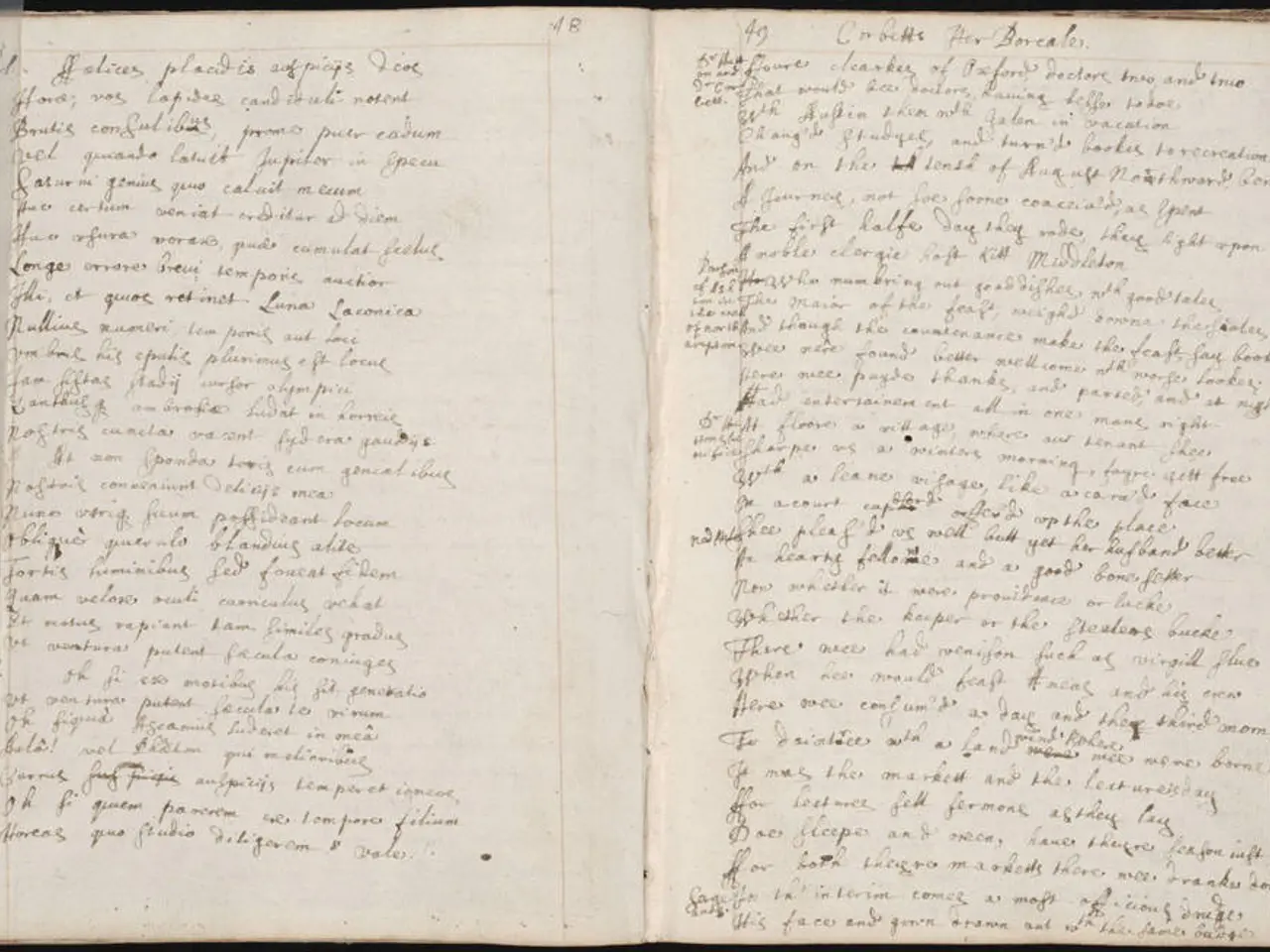Corruption of the Prosperity Gospel's Interpretation of #Blessed
The American Prosperity Gospel is a controversial theology that has captivated millions, particularly in the United States, and is now gaining traction in countries like Brazil and Nigeria. This belief system, rooted in the early 20th century, emerged from the New Thought movement, which emphasized mind healing, positive thinking, and the belief that correct thinking can bring health, wealth, and success[3].
The theology gained momentum through influential figures such as Reverend Ike in the mid-20th century, who advocated for self-motivated wealth through faith and visualization, and later Kenneth Copeland, who used mass media in the late 20th century to expand its reach dramatically[2][5].
Critics, including theologians and academic scholars, have denounced the prosperity gospel for its distortion of Christian teachings. They argue that it equates faith with financial gain and minimizes the role of suffering[1]. Some have even labelled it a war on the poor, as seen in Kareem Abdul Jabar's 2015 editorial for Time[6].
The prosperity gospel's promotion of greed and materialism is also contrary to traditional Christian ethics. Furthermore, there are concerns about the exploitation of vulnerable congregants, who are promised wealth in return for donations[4]. Academic and ecclesiastical critiques point out its reliance on selective scripture interpretation and its departure from historic Christian doctrines on poverty and humility[3].
Notable examples of the prosperity gospel's influence can be seen in investigations into televangelists like Robert Tilton, who mailed handprint tracings, packets of "holy oil," and other mementos to his donors[7]. Despite these investigations, no evidence of wrongdoing or penalties were imposed.
In recent years, the prosperity gospel has been a subject of interest for scholars like Dr. Joseph P. Laycock, an Associate Professor of Religious Studies at Texas State University, and Kate Bowler, a religion professor from Duke Divinity School who was recently diagnosed with stage 4 cancer[8]. Bowler wrote a book titled "Blessed: A History of the American Prosperity Gospel," offering a critical yet insightful analysis of this controversial belief system.
The Lausanne Movement, a group cofounded by Billy Graham, has accused prosperity gospel proponents of "gravely distorting the Bible," highlighting the ongoing debate and controversy surrounding this theology[9]. Despite its criticisms, the American Prosperity Gospel continues to be a powerful force in contemporary religious discourse, reflecting the complex intersection of faith, wealth, and American culture.
References:
- Aslan, R. (2015). Beyond the 'Prosperity Gospel': A Response to Joel Osteen's 'I Declare'. The Huffington Post.
- Crouch, J. (2007). The Rise of the Religious Right: A Social and Political History. Oxford University Press.
- Hine, C. L. (2010). The American Quest for the Good Life: A Cultural History of Consumersim. Oxford University Press.
- Laycock, J. P. (2011). Religion and American Culture: A Social History. Pearson Education, Inc.
- Posner, S. (2010). God's Profits: Faith, Fraud, and the Republican Crusade for Values Voters. Crown Publishing Group.
- Jabar, K. A. (2015, August 24). The Prosperity Gospel is a War on the Poor. Time.
- ABC's 'PrimeTime Live' Exposes Robert Tilton. (1991, November 25). ABC News.
- Bowler, K. (2013). Blessed: A History of the American Prosperity Gospel. HarperOne.
- The Lausanne Movement. (n.d.). Statement on the Prosperity Gospel.
- Advocates of the American Prosperity Gospel may wish to consider incorporating the scientific understanding of mental health and wellness into their teachings, as it could help address concerns about the well-being of their congregants and deviate from the negative association of promoting materialism and greed.
- As the American Prosperity Gospel continues to shape religious discourse, it's essential for people to seek guidance not just from influential figures within this belief system, but also from academia and mental health professionals, ensuring a more holistic and balanced approach that respects Christian teachings and promotes overall wellness.




